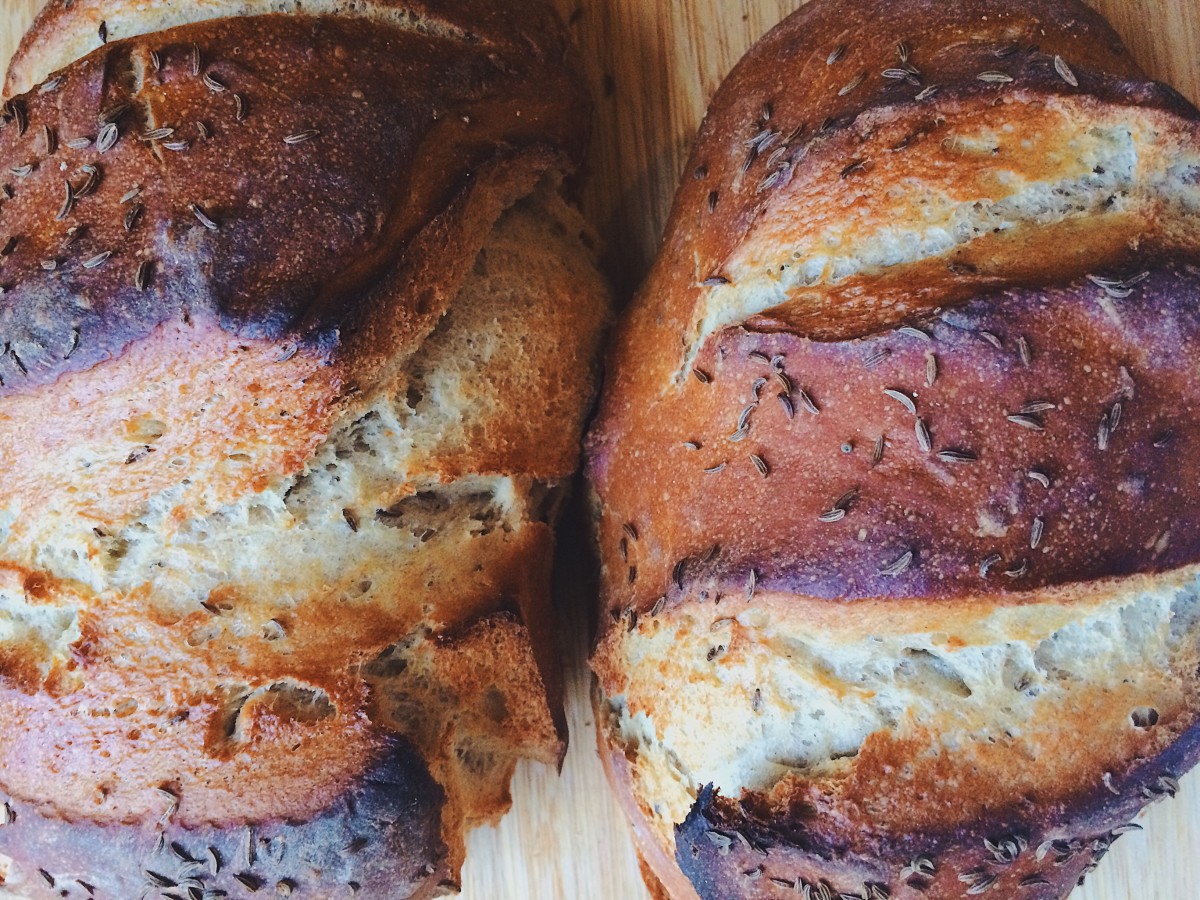SOS: ComAlt, Seminar Pre-Writing Week 6
21 February 2017
Word Count: 474
Passages:
“‘When you bring me a handsome loaf, entirely made by yourself,… I’ll give you my heartiest kiss, and promise to eat every crumb of the loaf myself’… As so often in the nineteenth-century discourse, the product of food preparation and the qualities of the worker are merged… a term used extensively by both Graham and Louisa May Alcott – wholesome.” (Tompkins 2012: 133, 135)
News Media Context:
Bread Porn: ‘Chef’s Table’ Season 3 Has Just The Thing To Give You A Rise
http://decider.com/2017/02/17/chefs-table-s3-nancy-silverton-bread-porn/
Discussion:
While reading “A Wholesome Girl” in Racial Indigestion I was particularly triggered by the role of bread and breadmaking in white femininity and domesticity. I felt myself wrestling with the conflicting symbolic significances of bread – the theme of bland, “wholesome,” traditional gender roles in the home, and the idea of male consumption of female breadmaking and sexuality.
On one hand, in both Chapter Four and Chapter Two on Graham’s Bread Treatise, bread and breadmaking is a trope for white feminine complacency, and therefore goodness. Domestic in both the national and personal sense, bread was the ultimate edible symbol of American values and Puritan virtue free from the corruption of dark skin and foreign ingredients.
On the other hand, especially in this week’s assigned chapter, the reader is introduced to breadmaking as an almost erotic process, and bread itself as the physical embodiment and consumption of the domestic labor and sexuality of white women. In the Rose Campbell novels, Uncle or “Dr.” Alec’s sexual affinity towards Rose is directly represented in his insistence and consumption of her breadmaking, as well as his choice to “cure” her with pills made from pieces of bread.
So bread is therefore healthy and virtuous, making all who make and eat it “wholesome,” but it also clearly represents the sexualization of the breadmaker. I haven’t decided exactly how I feel about these conflicting representations of bread, being that they directly affect me as a white woman who loves making and consuming my own wholesome loaves.
I am inclined to say that the idea of the sexualized bread baker resonates on some level. Following Tompkins’ assertion that the qualities of the cook are reflected in the food, I think about the fact that traditionally it is women who make the bread, therefore inherently bread must represent the feminine. My mind then envisions the process itself, which is at the very least highly personal and laborious – pulling, kneading and leveraging the dough with strong hands and particular intention. I have always said that I make bread with love, and I get satisfaction in knowing that the people who eat my bread enjoy it and even love it themselves, but if I push that just a step further, it can become sexualized. This idea that making and eating bread is an erotic experience makes me feel almost violated, considering I have shared this very personal part of myself with the entire class.
When relating these ideas to me personally, I am also faced with my potential role in white feminine contentment. I don’t see myself as a white woman who perpetuates marginalization, and I was certainly not part of the demographic of white women who voted for Donald Trump, but in the very domestic and traditional act of making bread, I am directly connected to the history of white feminine complacency and “wholesomeness.”
Citations:
O’Keefe, Meghan. (17 February 2017). Bread Porn: ‘Chef’s Table’ Season 3 Has Just The Thing To Give You A Rise. Retrieved from http://decider.com/2017/02/17/chefs-table-s3-nancy-silverton-bread-porn/
Tompkins, Kyla Wazana. (2012). Racial Indigestion: Eating Bodies in the 19th Century. NewYork: New York University Press.

Leave a Reply